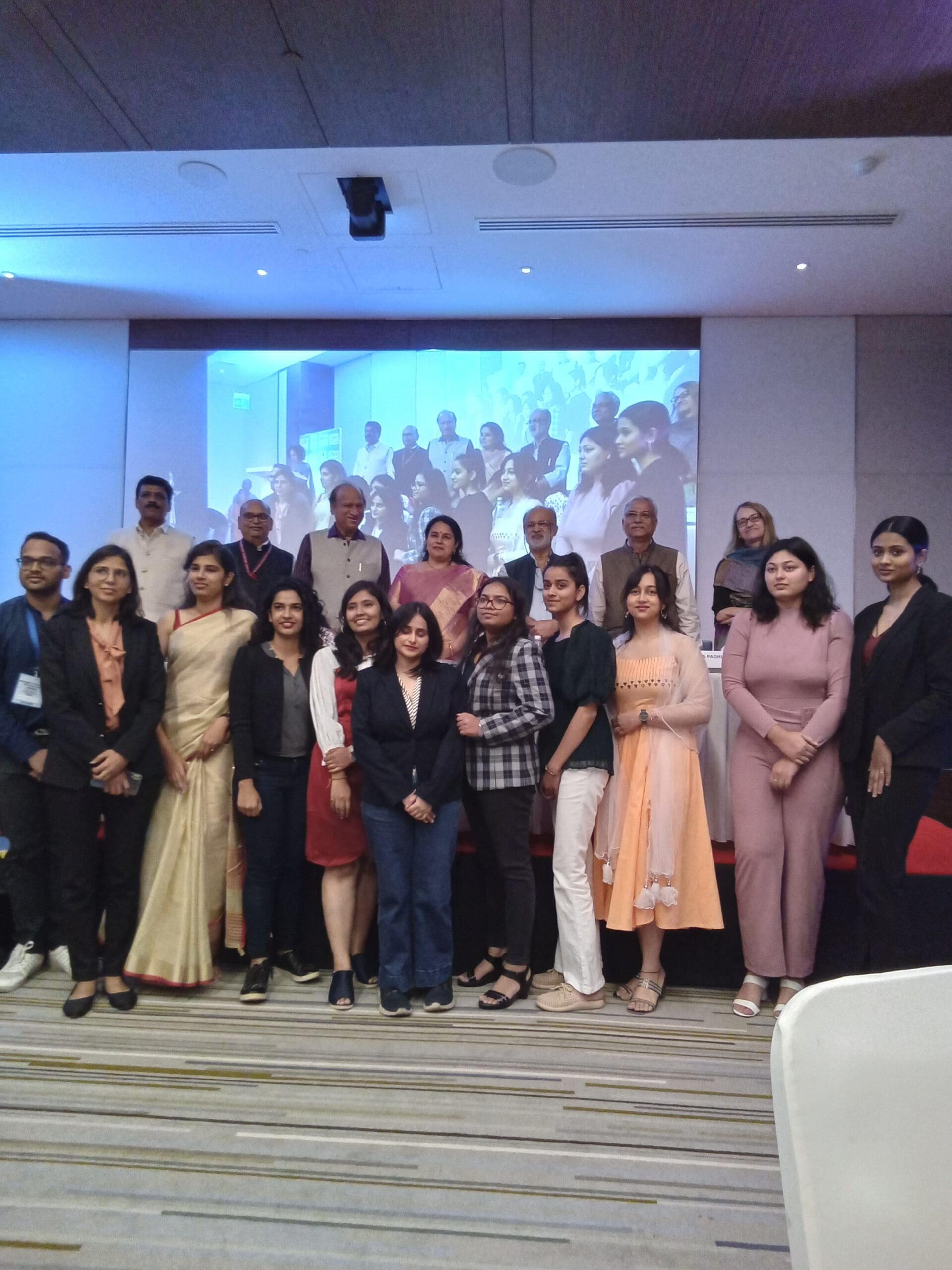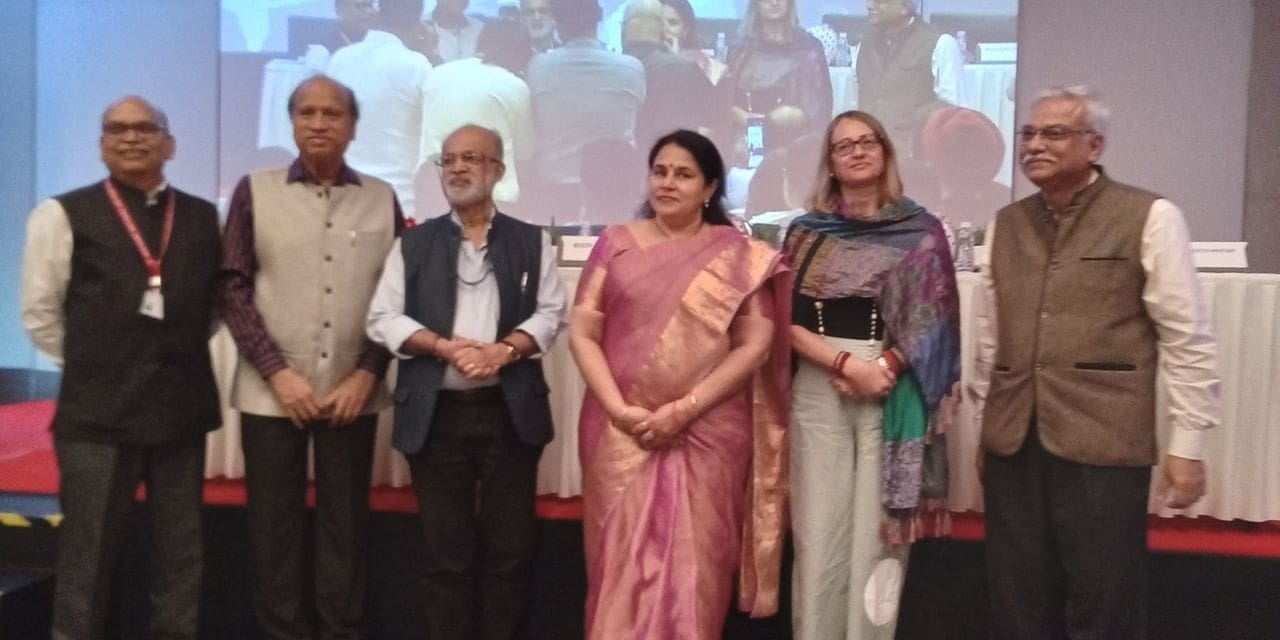The launch of the “Enhancing Sustainability & Circularity in Textiles” program, implemented by the Textiles Committee and the United Nations Environment Programme, was a significant event for the textile industry. The program aimed to promote sustainable and circular practices throughout the textile value chain, from production to disposal.
The event brought together key stakeholders from the textile industry, including representatives from the government, textile associations, and the academia. During the launch, the objectives, activities, and impact of the program were presented and discussed. The attendees had the opportunity to learn about the best practices and tools available for promoting sustainability and circularity in the textile industry.
Shri S.P. Verma, the Secretary of the Textiles Committee and Ministry of Textiles, Government of India, in his welcome address, Shri Verma emphasized the significance of the program in promoting sustainability and circularity in the textile industry. He acknowledged the efforts of the Textiles Committee and the United Nations Environment Programme in driving change and promoting best practices in the industry.
Shri Verma also highlighted the role of the government in supporting the textile industry in adopting sustainable practices and emphasized the need for continuous improvement in this regard. He encouraged the industry to embrace sustainable and circular practices, as they are not only crucial for the environment but also provide economic benefits to the industry.
During the launch of the “Enhancing Sustainability & Circularity in Textiles” program, several other prominent speakers also shared their views and insights. Shri Ajit B. Chavan, Additional CEO of GeM SPV, Department of Commerce and Industry, Government of India, joined the event virtually and shared his works in promoting sustainability in the industry.
Dr. Rossitza Krueger, Programme Head of the Sustainable Cotton Project at GIZ, discussed the importance of sustainability in the textile industry and the role of GIZ in promoting it. Shri Devasis Padhi from NABARD spoke about the role of finance in promoting sustainability in the textile industry, while P.K. Agarwal, an Advisor to the Cotton Corporation of India, emphasized the importance of traceability in promoting sustainability and circularity in the industry.
Shri Atul Bagai, Head of UNEP, joined the event virtually and shared his views on the three targets for the textile industry: achieving net zero emissions, 100% circularity, and eliminating waste.
Prof. Aniruddha B. Pandit, Vice-Chancellor of ICT, spoke about the importance of sustainability and circularity, emphasizing that the discussion on sustainability should be set within a specific timeframe, such as the millennium, and that we should consider both the life of the nation and the life of the planet.
Smt Prajakta L. Verma, Joint Secretary of the Ministry of Textiles, Government of India, discussed the role of the government in promoting sustainability and circularity in the textile industry. She emphasized the importance of collaboration between the government, industry, and other stakeholders to achieve the shared goal of a sustainable and circular textile industry.
Following the views of the speakers, an agreement was exchanged between the Textiles Committee (TC) and NABARD for promoting Intellectual Property Rights protection on unique textiles and incorporating sustainability into unique products of the country.
The launching of the program was marked by the screening of reels and infographics, showcasing the efforts and initiatives taken towards sustainability and circularity in the textile industry.
A competition was held on developing campaign collaterals for sustainability, and the winners were awarded prizes during the event. Additionally, a booklet on sustainability and circularity in textiles was released, providing valuable information and insights into the subject.
Additionally, Smt. Roop Rashi, Textile Commissioner at the Ministry of Textiles, Government of India, shared her views on the topic of “enabling textiles to enable livelihood”. She emphasized the importance of textiles in providing livelihood to a large number of people and the role of the government in creating a conducive environment for the growth and development of the textile industry. She highlighted the various initiatives taken by the government towards this end, and how these initiatives would benefit the industry and the people dependent on it. Smt. Rashi’s views provided valuable insights into the government’s perspective on the role of textiles in enabling livelihood, and how the industry and the government can work together towards a sustainable future.
Moreover, Shri. Kirti Chadha, Head of Quality, Technology & Innovation at Tata Trent Ltd, spoke about the company’s efforts towards sustainability and circularity. He mentioned that Tata Trent currently buys 3% of their stocks from sustainable resources and their plan to increase that number to 20% in the next five years. This was a valuable addition to the discussions as it demonstrated the commitment of a leading company in the industry towards sustainability and circularity, and the steps they are taking to achieve their goals. The audience was able to gain insights into the practical steps being taken by the industry to enhance sustainability and circularity in textiles, and how they can incorporate these in their own operations.

